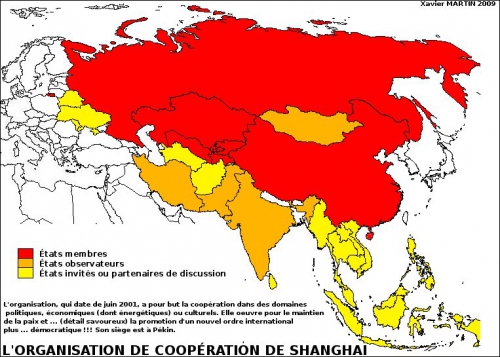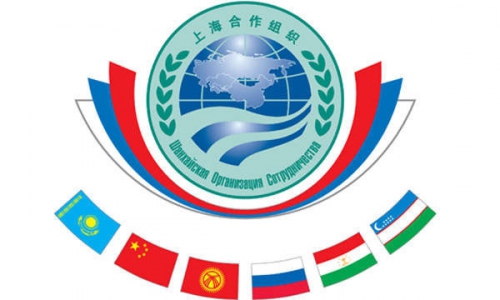Le socialisme a fait rêver certains, il a aussi fait cauchemarder, parfois les mêmes mais pas au même moment. Ou ce n’était pas le même socialisme. Quoi qu’il en soit, le socialisme a une double responsabilité dans l’actuel effacement du politique. L’une est liée à sa doctrine même, consistant à affirmer que la politique ne sera pas toujours indispensable puisqu’elle est le produit des contradictions de la société et qu’elle disparaîtra quand ces contradictions seront surmontées, résolues, dépassées, et la société enfin unie.
L’autre responsabilité du socialisme est indirecte, elle tient à la disparition des régimes socialistes. La disparition des socialismes « réels » a créé une désillusion. Elle l’a plus précisément largement amplifiée car la socialisme réel ne faisait plus guère rêver. Néanmoins, sa disparition est un événement considérable. Elle a indiqué qu’un seul monde restait notre unique horizon : le monde du capitalisme. Dès lors, à quoi bon la politique ?
L’histoire du socialisme français est fondée sur la succession d’illusions et de désillusions. La cause en est le principe de l’idéologie du progrès qui irrigue le socialisme français et qui a triomphé des autres tendances. La matrice du socialisme c’est la Révolution française. Non pas qu’elle était socialiste, mais elle a fait naître le monde dans lequel le socialisme devenait possible. Pas forcément un socialisme réel, mais une réelle espérance socialiste. En effet, la Révolution française s’est voulue terminale, elle a voulu la solution du problème politique. Pour autant, la Révolution a vite déçu.
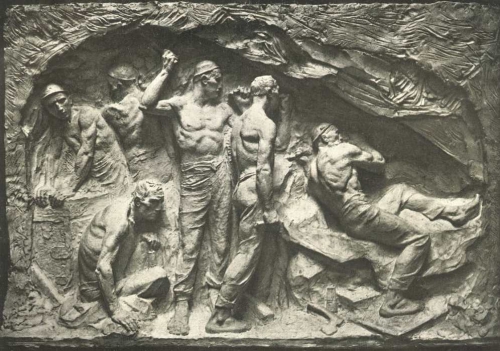
La réponse à ces déceptions a été analysée par les révolutionnaires de 1789-93 de la façon suivante : ce qui était en cause n’était pas les insuffisances de la Révolution, encore moins sa nature même (une révolution bourgeoise) mais les ennemis de la Révolution. Ceux-ci doivent donc être traqués et liquidés. Ce qui fut fait, en Vendée, à Lyon et ailleurs. La nature de l’espérance née de la Révolution française amène à cette radicalisation du rapport entre amis et adversaires, ces derniers devenant des ennemis à réduire sans concessions. Le nombre de prêtres déportés devient ainsi le critère des « progrès de la raison (1) ». Pourquoi ? En remplaçant les « droits de Dieu » par les droits de l’homme, la Révolution a prolongé le christianisme tout en le renversant. Si l’homme est à l’image de Dieu, cette translation est en somme naturelle. Elle devait finir par intervenir. Michelet explique cela : « La Révolution continue le Christianisme, et elle le contredit. Elle en est à la fois l’héritière et l’adversaire. Dans ce qu’ils ont de général et d’humain, dans le sentiment, les deux principes s’accordent. Dans ce qui fait la vie propre et spéciale, dans l’idée mère de chacun d’eux, ils répugnent et se contrarient. Ils s’accordent dans le sentiment de la fraternité humaine. Ce sentiment, né avec l’homme, avec le monde, commun à toute société, n’en a pas moins été étendu, a approfondi par le Christianisme. A son tour, la Révolution, fille du Christianisme, l’a enseignée pour le monde, pour toute race, toute religion qu’éclaire le soleil. Voilà toute la ressemblance. Et voici la différence (2). »
La nouvelle forme de la foi
La raison, cette raison que Dieu a donné à l’homme, devient la nouvelle forme de la foi. On le voit : il y a une logique chrétienne à l’œuvre dans nos sociétés post-chrétiennes. Jean Jaurès, par son mélange de spiritualisme et de marxisme affiché, est caractéristique de cela. Il réinterprète toute l’histoire du socialisme en gommant ses contradictions. Il fait de Babeuf un précurseur du socialisme à la fois démocratique, gradualiste et marxiste, ce socialisme que Jaurès prétend représenter, de façon à affirmer une continuité entre Révolution française, esprit d’égalité, et au final socialisme marxiste. Que l’analyse de Jaurès soit fausse n’est pas ici l’essentiel, cette analyse a produit des effets historiques importants. Elle s’est appuyée sur des croyances et les a amplifié. La popularité posthume de Jaurès vient d’ailleurs en grande partie, outre le « prestige » de son assassinat, de ce qu’il a conforté des préjugés de confort pour la gauche. L’analyse jaurésienne – qui n’est pas seulement la sienne – qui fait du socialisme la continuation de la Révolution française est fausse à maints égards, ne serait-ce que parce que le socialisme ne peut être la continuation d’une révolution bourgeoise, mais elle a produit de l’histoire et pas seulement des illusions.
Le socialisme sous les feux de ses penseurs
Comment les principaux penseurs français du socialisme le voient-ils ? Avec Saint-Simon, la foi dans le progrès et la raison prennent la forme d’une foi dans l’Industrie (la majuscule est de lui). Ce n’est pas la lutte des classes qui divise la société, ou plus exactement il n’y a que deux classes, non pas les prolétaires et les propriétaires des moyens de production, mais les producteurs et les oisifs. À l’horizon de ce que Saint–Simon appelle le Nouveau Christianisme (1825), tout le monde se conduira comme « entre frères » et tout sera dirigé « vers l’accroissement du bien-être de la classe la plus pauvre » (Le Nouveau Christianisme). L’Industrie maîtrisée par les hommes réalisera donc une promesse de bonheur universel. Cette promesse réalisée, il n’y aura plus de place pour la politique. Il n’y aura plus d’antagonismes à résoudre et il n’y aura plus de limites à observer.
Pierre Leroux, de son côté, inventeur du mot « socialisme », reconnaît l’existence d’une lutte des classes marquée par l’opposition entre salariat et patronat. Pour autant, son espérance est la réalisation d’une unité retrouvée. Surtout, il met le socialisme dans la continuité de la Révolution française et celle-ci dans la continuité du christianisme.

Pour Charles Fourier, l’objectif final, la promesse, c’est l’Harmonie universelle par le phalanstère. Marx constitue une rupture. Il veut bannir tout idéalisme. Il veut rompre avec toute espérance d’ordre religieux. « Le communisme n’est pas pour nous ni un état qui doit être créé ni un idéal sur lequel la réalité devra se régler. Nous appelons communisme le mouvement réel qui abolit l’état actuel (3) ». Marx prend de la distance par rapport à l’idée si répandue chez les Français de la Révolution française comme préfiguration du socialisme. Mais Marx formule aussi une promesse : le mouvement réel de l’histoire est en train d’accomplir le socialisme. Il y a pour Marx des stades successifs et nécessaires du développement historique. La tâche de l’homme est de les accompagner, de les pousser, de les préparer. Mais l’homme n’a pas à les inventer. Tout est analysé dans le mouvement de l’histoire non en termes de contradictions qui remettraient en cause la théorie des stades nécessaires et successifs mais en termes de blocages qui valident la réalité de la poussée.
Les communistes français, quelque cinquante ans plus tard, donneront à la téléologie déjà présente chez Marx une forme caricaturale. Ainsi, si le Front populaire a déçu, ce n’est pas du point de vue communiste parce qu’une partie de la classe ouvrière n’en partageait pas les idéaux, c’est parce que la bourgeoisie a mis en œuvre des moyens considérables pour faire échouer le « mouvement ouvrier ». Ce n’est évidemment pas faux mais réducteur.
Dans l’histoire du socialisme français, la question de la continuité historique avec la Révolution française est décisive. L’affaire Dreyfus montre, de manière emblématique, comment se présente cette question. Si Jules Guesde refuse de soutenir Dreyfus, qu’il soit innocent ou coupable, c’est parce qu’il veut se conformer au modèle de l’égoïsme bourgeois de 1789, qui ne faisait pas le tri entre les « bons » aristocrates et les « mauvais ». L’objectif était de détruire tout pouvoir de l’aristocratie. Pour Jules Guesde, tous les problèmes doivent être vus selon une logique de classe : prolétaires contre bourgeois. Or Dreyfus appartient au camp de la bourgeoisie. Sa culpabilité, son innocence, l’éventuelle injustice dont il serait victime sont une affaire interne à la bourgeoisie. Le prolétariat n’a pas à s’en mêler. Mieux, il doit se réjouir de l’affaiblissement de la bourgeoisie, minée, divisée par un problème moral.
La position de Jaurès est autre. Tout d’abord réservé par rapport à l’engagement dans cette affaire, il insiste finalement sur la logique du progrès. Au dualisme bourgeois/prolétaire de Guesde, il en ajoute un autre, qui s’avère vite pour lui le plus important, et surdétermine le premier. Ce nouveau dualisme, c’est celui qui existe entre « le progrès », « ce qui vient », et le passé, les forces qui veulent « revenir en arrière ». Jaurès affirmait : « La société d’aujourd’hui est divisée entre capitalistes et prolétaires ; mais, en même temps, elle est menacée par le retour offensif de toutes les forces du passé, par le retour offensif de la barbarie féodale, de la toute-puissance de l’Église, et c’est le devoir des socialistes, quand la liberté républicaine est en jeu, quand la liberté de conscience est menacée, quand les vieux préjugés qui ressuscitent les haines de races et les atroces querelles religieuses des siècles passés paraissent renaître, c’est le devoir du prolétariat socialiste de marcher avec celle des fractions bourgeoises qui ne veut pas revenir en arrière (4) ». La position de Jaurès l’a emporté sur celle de Guesde. Jaurès n’avait tort de dire que les clivages de classe ne disent pas le tout de la justice. Mais Jaurès a dit plus, il a sanctifié « les forces du progrès », celle de l’avenir « qui vient ». On peut voir dans cette vision du progrès ce qui a déterminé l’avenir de la gauche en France. C’est aussi le fruit de la pensée profonde qui a toujours animé la gauche. C’est le triomphe de l’idée de progrès, de l’idée que l’avenir sera toujours meilleur que le passé, C’est aussi l’idée que, quand la réalité semble démentir la prédiction de progrès, ce ne peut être à cause de limites historiques, ou de contradictions insolubles, mais à cause de la « méchanceté» d’une faction, d’une minorité, de « malfaisants » que, justement, il faut « réduire ».
La gauche, en choisissant Jaurès, est tombée du côté où elle penchait. Pour Jaurès, « le socialisme, c’est la République qui a résolu la question sociale » note Gérard Belloin (5). La vision « continuiste » de Jaurès a cette conséquence : il ne faut pas tant « battre politiquement la bourgeoisie » que « faire avancer le progrès ». En ce sens, la séparation de l’Église et de l’État, dont on pourrait penser qu’elle n’a pas de rapport avec le socialisme, en a un. Il s’agit, en boutant l’Église hors de l’État, de faire coïncider la société avec elle-même. L’État sans Dieu coïncidera avec une société sans Dieu.
Or cette laïcisation de la société n’est pas seulement, ni même principalement, portée par les socialistes. Elle l’est par le Parti radical-socialiste. Il y a donc une continuité entre le socialisme et la gauche libérale-progressiste, puis radical-socialiste à partir de 1901, celle qui a autorisé la création des syndicats (avec la loi Waldeck-Rousseau de 1884). Si le socialisme s’est historiquement presque toujours dit « de gauche », ce n’est pas par erreur, comme tendrait à le faire penser une lecture rapide de Jean-Claude Michéa (qui a bien sûr raison de rappeler que Marx lui-même ne s’est jamais dit « de gauche » bien qu’inspiré par les… hégéliens de gauche, comme quoi on n’évacue pas si facilement cette référence). Ce n’est pas par erreur, c’est parce qu’il y a un lien entre la laïcisation de la société et l’espérance socialiste. Il y a donc un lien, une parenté entre un socialiste et un laïciste même anti-collectiviste.
Le socialisme reprend la promesse des fins dernières. Ce n’est pas pour la laisser à l’Église de Dieu. Ces fins dernières sont transposées sur terre. Dans la conception de ces fins dernières, la vision des stades « nécessaires et successifs » du « développement historique » est essentielle. C’est pourquoi les socialistes, même quand, en pratique, ils étaient parfaitement modérés et réformistes, rejetaient la vision d’Édouard Bernstein expliquant qu’il n’y a peut-être pas de concentration croissante du capital, et que la révolution prolétarienne ne sera donc sans doute ni inéluctable ni nécessaire. Évolution plutôt que révolution.

Qu’ils soient réformistes ou révolutionnaires – question de méthode et non de différent sur l’objectif – les socialistes ont pourtant tous le même Dieu : c’est la science, et plus encore le progrès de la science. Pour Marcelin Berthelot, à la suite d’Auguste Comte et avec Ernest Renan, la science doit « prendre la place de Dieu ». La société doit être dirigée par la science. La science, pensait Jaurès de son côté, fait partie des « forces neuves » qui concourent à « la grande paix humaine ».
La croyance en la science, la foi dans la raison ont amené les socialistes, y compris ceux d’entre eux s’appelant « communistes », à croire que l’école peut résoudre tous les problèmes. C’est pourquoi, avec Lucien Herr, cofondateur de L’Humanité, le socialisme fut, dans les années 1910, si lié aux milieux enseignants, universitaires, intellectuels. C’est une caractéristique qui restera longtemps actuelle.
Le Parti communiste, nouvel acteur de la gauche à partir du Congrès de Tours de 1920, insiste lui aussi sur les vertus émancipatrices de l’école. Certes, il le fait surtout dans ses périodes « unitaires », en dehors de ses périodes de repli « sectaire », de type « classe contre classe », ou « feu sur les ours savants de la social-démocratie (Aragon, 1931) », périodes « rupturalistes » qui ne lui étaient guère favorables électoralement. L’école, pour les socialistes et les communistes, participe de la « création continue » de la démocratie, celle qui va vers le socialisme, et provient en droite ligne de la Révolution française, dès 1789, et sans rien en exclure, et surtout pas 1793-94. Le socialisme a toujours vu l’école comme une nouvelle religion, la bonne religion menant au socialisme par la diffusion de la connaissance, de la science et la dissipation des brumes de l’obscurantisme, celui-ci resté attaché à des différences illusoires qui existeraient entre peuples, races, religions, sexes. Face à ces différences, socialistes et communistes expliquent que le progrès, le sens de l’histoire, c’est que l’humanité est une, et de toute façon (si on en douterait) va vers l’unité. D’où l’actuelle défense de l’androgynie par la gauche sociétale « genriste (6) » actuelle.
Solidaire de la laïcisation menée par la gauche avec les radicaux-socialistes, les hommes de la S.F.I.O. considèrent que le socialisme, c’est « la République accomplie » selon l’expression de Jean Jaurès, loin, très loin des positions ultra-minoritaires défendues par exemple au sein du Cercle Proudhon. Ce qui prime dans la pensée socialiste, c’est la continuité Révolution française – République – Socialisme. De là s’ensuivent et s’expliquent beaucoup de choses.
Solidaires de la nation laïcisée, les socialistes le sont aussi, en 1914, de la République française opposée aux Empires centraux. La défaite de la République serait pour eux la fin des espérances socialistes. Jules Guesde, devenu ministre après la déclaration de guerre de 1914, se réfère alors aux Jacobins. Décidément, c’est toujours la Révolution française qui inspire les socialistes et structure leur imaginaire. Bien sûr, partout en Europe, les socialistes se rallient aux élans patriotiques. Chaque socialisme y met ses spécificités, tel le souvenir de la guerre de Libération de 1813 en Allemagne. Mais il y a un point commun : si le socialisme c’est le dépassement des égoïsmes, le patriotisme, ce l’est aussi. Surtout, les sentiments d’appartenance nationale s’avèrent infiniment plus forts que les opinions politiques, même enracinées dans une certaine « conscience de classe ». Les ouvriers français n’oublient pas qu’ils sont ouvriers, mais ils sont d’abord ouvriers français. La patrie est pour tous un « vivre-ensemble » menacé, c’est une terre, une langue, une attache plus forte que tant d’autres.
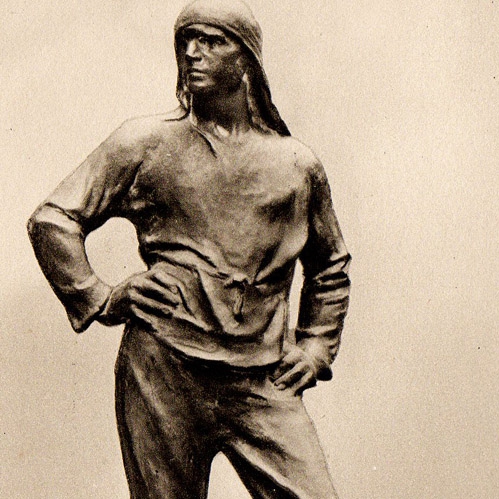
L’Action française, bien qu’ennemie de la République, « la Gueuse », se rallie, tout comme la S.F.I.O., à l’Union sacrée (de même qu’en 1940, l’A.F. donnera de très nombreux cadres à la Résistance). « C’est la guerre [de 1914] qui, précisément, a révélé qu’il s’agissait de tout autre chose [le sentiment patriotique] que d’une affaire de propagande. Lorsque des millions d’individus acceptent de mourir pour une cause, nous sommes en présence en présence de motivations qui puisent au plus profond de leur être », remarque Gérard Belloin (7).
Le P.C.F., un parti de type nouveau
Ralliés à l’Union sacrée, la majorité des socialistes français subirent certes, en 1918 et après, le contrecoup de la disparition de la « fraternité du front ». La majorité d’entre eux se rallient aux 21 conditions de la nouvelle Internationale, celle de Lénine. Ils ne prennent d’abord pas au sérieux toutes ces conditions, ce qui explique tant de départs du nouveau P.C.F.-S.F.I.C. Avec le nouveau Parti, il s’agit pourtant bel et bien de rompre avec l’esprit « frondeur » et avec la dispersion des socialistes. Il s’agit de bâtir un « parti de type nouveau », un « parti-armée », capable d’opérer des volte-face en ordre groupé. Le nouveau parti est détenteur d’une science, le matérialisme historique et dialectique, et dépositaire d’une foi, la foi en l’avènement universel du socialisme, conformément au sens de l’histoire. Les socialistes français ont le sentiment de recommencer la Révolution française, voire, de la mener à son vrai terme. Mais ils n’ont pas fait la révolution socialiste, contrairement aux communistes russes, d’où une forme de complexe vis-à-vis d’eux. Il leur faut donc être d’autant plus dévoué à la « patrie du socialisme », l’Union soviétique. Lénine joue du prestige de la Grande Révolution. » Nous, les bolcheviks, sommes les Jacobins de la révolution prolétarienne (8) », proclame-t-il. Le léninisme s’appuie sur la culture de la radicalité, voire sur son culte, dans le prolongement de l’admiration pour les « grands ancêtres » de la Révolution.
Dans le même temps, en France, la guerre de 14-18 produit une désillusion profonde par rapport à la conception d’indépendance des syndicats par rapport aux partis politiques (9). Ce sont ainsi, curieusement, en majorité des gens issus de l’anarcho-syndicalisme des années 1910 qui fondent en 1921 la C.G.T.U., le syndicat lié, et même inféodé au nouveau Parti communiste. Voilà quel fut le fruit de la désillusion par rapport à la doctrine d’indépendance syndicale d’avant la Grande Guerre (la Charte d’Amiens de 1906). La bolchévisation du Parti communiste, la doctrine « classe contre classe » amena ainsi le P.C.F. à s’opposer au Cartel des Gauches de 1924. Le P.C.F. se voulut ainsi parfois socialiste au-delà du clivage droite-gauche et de ses illusions, qui sont les illusions du réformisme, et qu’il appela souvent trahisons (10). Mais ce ne fut que lorsque le P.C.F. accepta de s’inscrire dans le clivage droite-gauche, de préférence en étant dominant, qu’il se situa à un haut niveau de popularité.
Naissance du P.C.F., scission de la C.G.T. et création de la C.G.T.U. : pour socialistes et communistes, la guerre de 1914 a joué un rôle d’accélérateur. La guerre a créé ce que Lénine a appelé deux « poussins » : l’Allemagne et la Russie. Les deux étaient prêts pour la Révolution. L’un franchit le pas, l’autre non. Il faut se mettre « à l’école du capitalisme d’État allemand », disait Lénine (11). L’économie de guerre allemande est en effet selon lui la matrice du socialisme. Elle réalise la concentration et centralisation de l’économie entre quelques mains, elle repose sur le dirigisme et la mobilisation de tous. C’est une économie à laquelle il ne manque que la prise du pouvoir politique par le prolétariat. Il s’agit en somme de faire mieux que les militaristes allemands, en mettant l’outil qu’ils ont créé au service du peuple travailleur. Quand l’espérance de la révolution mondiale aura laissé la place à la montée des fascismes, les communistes considéreront, particulièrement en Allemagne, qu’il s’agit là encore, comme avec la guerre de 1914, d’une accélération du mouvement historique. La montée des fascismes montrerait que le temps des démocraties est décidément terminé et que celui du communisme est venu. Face aux fascismes, derniers soubresaut d’un système capitaliste à bout de souffle, le communisme serait la seule issue.
L’ère des masses fut ainsi interprétée par les socialistes et communistes comme génératrice d’une nouvelle rationalité. Les aspirations à l’égalité des conditions et à la mise en commun des biens l’emporteraient sur le patriotisme, le goût de la propriété, les anciennes valeurs. Plus encore, la politique se trouverait chargée d’assumer une fonction auparavant dévolue à la religion : donner du sens à la vie. Mais dans ce domaine ce furent les fascismes qui, pendant une ou deux décennies, apparurent mieux placés que le communisme pour jouer ce rôle.
Pour les communistes français, la solidarité avec l’U.R.S.S., et plus précisément l’alignement sur l’Union soviétique, est indissociable de leur idée du progrès et donc de la Révolution. Les frontières de l’U.R.S.S. étaient pour les communistes les frontières provisoires de la révolution mondiale. Et pour les socialistes ? Pour les gardiens de ce que Léon Blum avait appelé la « vieille maison « ? Les choses étaient moins simples qu’on pourrait le croire. Pour les socialistes même antitotalitaires, la critique de l’U.R.S.S. n’était pas aisée. Exemple : Jean Zyromski, Marceau Pivert, Oreste Rosenfeld, au sein de la S.F.I.O., représentaient la gauche, avec le courant La Bataille socialiste. Or, ils considéraient que, malgré toutes les insuffisances de l’URSS, l’essentiel était que, par l’industrialisation, la Russie se rapprochait quand même du socialisme.
Les périodes où le P.C.F. fut le plus à l’aise dans l’Entre-deux-guerres furent celles où les exigences de la politique internationale de l’URSS étaient de rompre son isolement et d’encercler l’Allemagne. Ce sont les périodes qui amenèrent le P.C.F. à être tactiquement unitaire, sans renier en rien ses analyses et préventions contre les sociaux-démocrates mais en les faisant passer au second rang. Cette période unitaire, c’est le grand tournant de 1934, avec le 27 juillet, la signature du pacte d’unité d’action entre P.C.F. et S.F.I.O., rejoints plus tard par le Parti radical, ce pacte préludant au Rassemblement populaire, puisque tel était le nom officiel de ce que l’on désignera plus couramment sous le nom de Front populaire.
Dans le cadre du « grand tournant », le P.C.F. défend l’idée d’« avancées » démocratiques mais non socialistes. Il s’agit de n’effrayer personne. C’est pourquoi le P.C.F., pour garantir le caractère non socialiste du projet commun avec la S.F.I.O., tient à ce que le Parti radical en soit partie prenante, ce parti étant lié à la petite bourgeoisie anti-collectiviste et garant de ses intérêts dans la vision « classiste » un peu sommaire du P.C. Il fallait d’autant moins pour le P.C.F. se trouver dans un tête à tête avec la S.F.I.O. qu’il lui déniait une quelconque légitimité en matière de socialisme.
Le tournant patriotique, réformiste et unitaire « à gauche » du P.C.F. montra l’osmose, dans la culture politique de la gauche, entre esprit socialiste et esprit républicain. C’est pourquoi ce tournant tactique apparut comme « naturel ». Il fut en conséquence propice aux succès électoraux du P.C. : 10 % des voix en 1924, 11 % en 1928 mais 15 % en 1936. Les périodes unitaires avaient encore un autre mérite pour le P.C.F. : elles permettaient d’exiger des socialistes qu’ils mettent en sourdine leurs critiques de l’U.R.S.S. L’antifascisme était un excellent argument pour faire barrage aux critiques du stalinisme. C’est pourquoi le pacte germano-soviétique de 1939 mit le P.C.F. dans un grand malaise. Il amena de nombreuses défections. Il signifiait un retour à l’isolement, l’abandon de l’antifascisme et du patriotisme le plus élémentaire, celui que se manifeste face à l’Allemagne. Le P.C.F. pourtant tellement plus à l’aise sur la ligne « patriote » et « démocrate » que sur la ligne « classe contre classe » suivit pourtant la consigne de Staline, précisément parce que la brutale bolchévisation des années 1921-28 avait porté ses fruits. Cela allait loin avec le pacte germano-soviétique. Molotov affirmait au soviet suprême : « Il est criminel de faire la guerre à l’hitlérisme(17 novembre 1939) (12). » L’anti-bellicisme et même le défaitisme révolutionnaire furent la position du P.C.F. jusqu’au 22 juin 1941, non sans vouloir récupérer l’exaspération du peuple français due à la fois à la guerre, à l’impréparation, à la défaite et aux prélèvements du fait de l’Occupant.
Tout change avec l’entrée de l’U.R.S.S. dans la guerre. Résistants tardifs, les communistes voulurent distinguer leur résistance de celle des autres. Les attentats individuels contre les Allemands, facteurs de représailles y compris contre bien des Français pas le moins du monde communistes, fut la marque de fabrique de la résistance communiste. Ce fut l’instrument de démarquage de la résistance communiste. Après avoir salué à l’été 1940 les « discussions amicales » (sic) qui se nouaient (paraît-il) entre travailleurs parisiens et soldats allemands, les communistes prônèrent la haine liquidatrice contre les Occupants. Un mot d’ordre de 1944 disait : « À chacun son boche » (un militant du P.C.F., Pierre Broué se fit exclure pour avoir critiqué ce mot d’ordre).
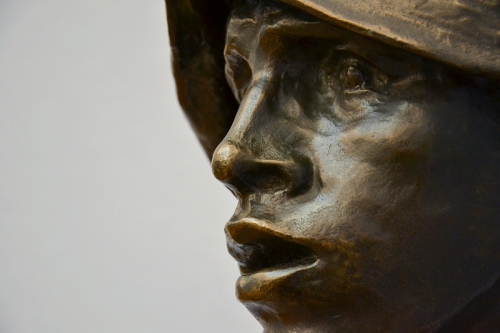
À la victoire des Alliés, les communistes plastronnent. Pour le P.C.F., la guerre avait montré non seulement la viabilité du communisme vainqueur de la moderne Allemagne nazie, mais aussi sa supériorité sur tout autre système. Cela rendait d’autant plus légitime de travailler à l’accouchement du socialisme en France. En 1946, les socialistes eux-mêmes montraient leurs complexes vis-à-vis du système soviétique. Avec Guy Mollet et contre Léon Blum, ils se proclamaient marxistes (dans la plus pure tradition de Jules Guesde) et ils refusaient de servir à la « prolongation », disaient-ils, d’un « système agonisant » (le capitalisme selon Guy Mollet). Le Front populaire avait vu le P.C.F. pratiquer un soutien sans participation au premier gouvernement Blum. De 1945 à 1947, il pratiqua une forme de participation sans soutien aux gouvernements de la Libération. À partir de 1947 et de la conférence constitutive du Kominform, à Szklarska Poreba en Pologne, le « national-thorézisme » du P.C.F., sa version française du stalinisme, l’amena à des « innovations » théoriques telle la théorie de la paupérisation absolue des travailleurs (1955). Alors que les nouvelles classes moyennes (cadres, techniciens, fonctionnaires…) se développaient, le P.C.F., dans les années 50, les analyse essentiellement comme des parasites de la classe productive. Le P.C.F. s’oppose ainsi aux thèses de la « nouvelle classe ouvrière (13) ». Il abandonnera la thèse de la paupérisation dite « absolue » en 1964.
Sur la question de l’Algérie, le P.C.F. est d’abord très réservé par rapport à l’idée de l’indépendance (14). Il craint que celle-ci ne ralentisse le développement des forces productives, et indirectement donc, le passage au socialisme. Le P.C.F. se rallie à l’idée d’indépendance de l’Algérie essentiellement en fonction des intérêts de la politique internationale de l’U.R.S.S. Au-delà de ces aspects tactiques, il y a un point commun dans l’analyse « progressiste » aussi bien des socialistes que des communistes. Cet aspect, c’est que le droit des peuples à disposer d’eux-mêmes est subordonné à la nécessité de franchir les étapes historiques du développement, étapes dont la dernière est le socialisme.
Si l’anticolonialisme faisait partie des 21 conditions d’adhésion à la IIIe Internationale dirigée de Moscou, c’est plus pour des raisons tactiques que pour des raisons de fond. L’histoire l’a montré : au moment où le P.C.F. soutenait les aspirations à l’indépendance de l’Algérie, il s’opposait au soulèvement hongrois. Georges Marchais soutiendra ensuite, pour des raisons d’ailleurs défendables en politique internationale face à l’hégémonie américaine, l’intervention russe en Afghanistan, qui n’allait tout de même pas dans le sens du droit des peuples à disposer d’eux-mêmes.
Cela ne se comprend pas hors de la matrice même de la culture progressiste du P.C.F. comme du reste de la gauche. La référence à la Révolution française, qui prétendait « apporter la liberté » au monde, est là encore toujours déterminante. La révolte hongroise de 1956 ? Une reprise de la « contre-révolution » vendéenne de 1793. Ainsi, le P.C.F. peut-il critiquer cette révolte, en l’assimilant notamment aux Croix Fléchées ( !), qui étaient bien oubliés dans la Hongrie des années 50, en puisant au cœur même de la culture politique de la France. Dans le même temps, le lancement de Spoutnik (1957) et l’aventure de Gagarine, le premier homme dans l’espace (1961) semblent montrer que le socialisme, c’est la science. Dans le scientisme ambiant de la gauche républicaine, et pas seulement des communistes, c’est un argument très fort. Si le socialisme est bon pour la science, n’est-il pas l’avenir ?
En 1958, la création de la Ve République isole d’abord le P.C.F. En difficulté, il plonge électoralement. Il est aussi isolé. Dans un premier temps, Guy Mollet est ministre de de Gaulle. Il n’y a que le P.C.F. et l’extrême droite dans l’opposition. L’attachement affiché du P.C.F. aux institutions de la IVe République le met dans une posture parfaitement minoritaire. Bien entendu, le refus du « pouvoir personnel » de de Gaulle le situe dans la tradition du parlementarisme (plus doctrinal que réel au demeurant) de la Révolution française. Le P.C.F. est aussi dans la nostalgie de la Constitution de 1793 (jamais appliquée). Dès 1962, le P.C.F. peut échapper à son isolement. Il se rapproche alors de la S.F.I.O., revenue dans l’opposition face à de Gaulle. C’est une période où le P.C.F. joue pleinement de l’ambivalence de l’aspiration socialiste en France.
Pour beaucoup de Français le socialisme, c’est plus de justice sociale, mais aussi plus d’État, et donc plus de protections. Pour beaucoup, le socialisme ce n’est pas la collectivisation c’est plus de (petite) propriété et plus de sécurité. C’est particulièrement vrai pour le monde paysan. Le slogan du P.C. dit : « La terre à ceux qui la travaillent ». Le mot d’ordre séduit, face à la concentration des terres, et il n’a bien sûr aucun rapport avec les kolkhozes (fermes collectives) et les sovkhozes (fermes d’État) du socialisme réel de type soviétique. Ce tropisme paysan du P.C.F. sera manifeste avec l’accession au secrétariat général, poste suprême du Parti, de 1964 à 1969 de Waldeck Rochet, patron de l’hebdomadaire communiste La Terre. Son successeur à la tête de cet hebdomadaire, André Lajoinie, sera aussi un dirigeant important du P.C., et son candidat aux présidentielle de 1988.
En s’étant rapproché de la S.F.I.O. dans les années 60, le P.C.F. est plutôt en position de force. Il manifeste une grande vitalité intellectuelle, contrastant avec l’atonie des socialistes, partagés entre un réformisme mou et un esprit « modernisateur » séduisant auprès d’une partie des élites mais laissant indifférentes les couches populaires.
Après la thèse de la paupérisation absolue des travailleurs, le P.C.F. développe, à partir des années 60, une idée beaucoup plus réaliste. C’est la thèse de l’apparition de nouvelles couches sociales, en lien avec la Révolution scientifique et technique (R.S.T.) : cybernétique, robotique, informatique (15). Cette révolution des technologies et des pratiques productives est interprétée comme un nouveau bond en avant des forces productives. Cette révolution pousserait à une conséquence inéluctable : la socialisation des moyens de production. Le capital privé, parcellisé serait en effet trop étroit pour être au niveau de la poussée des forces productives. À partir de là, le P.C.F. théorisait une alliance avec les nouvelles couches intermédiaires salariées, les techniciens, les ingénieurs, les cadres. Cette démarche fut explicitée au cours de la célèbre session du Comité central d’Argenteuil en 1966. C’est dans cet esprit qu’en 1978, le P.C.F. présentait Philippe Herzog contre Paul Quilès, socialiste, à Paris XIIIe, deux polytechniciens dans un quartier de nouvelles couches salariées. Le paradoxe est que le P.C.F. évolue sur ses analyses sociales et sociétales quand le modèle soviétique commence à servir de repoussoir, à partir de la fin des années 60.
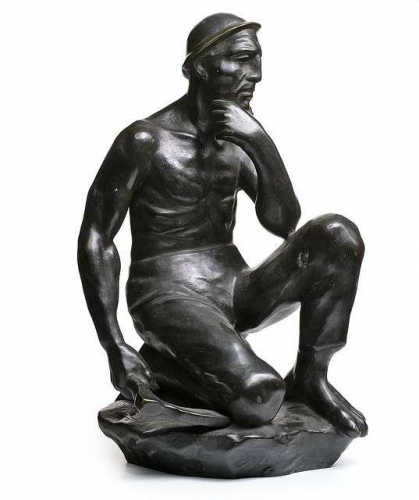
Un grand coup porté au progressisme du P.C.F. est le rapport du Club de Rome, Les limites de la croissance (1972). C’est la même année qu’est signé avec le Nouveau parti socialiste et les Radicaux de gauche le Programme commun de gouvernement (P.C.G.) qui soulève un immense espoir. Contrairement au Rassemblement populaire de 1936 l’Union de la gauche se donne des objectifs socialistes, avec un important programme de nationalisations. Le Parti socialiste semble vouloir « imiter » le P.C., parlant de « Front de classe » là où le P.C.F. parle d’« Union du peuple de France ».
Pourtant, très vite, le projet « socialiste », après la victoire de 1981, change d’horizon. Il abandonne en un an toute perspective socialiste : la rigueur intervient dès 1982 et est confirmée par le tournant de mars 1983. Plus encore, le pouvoir est abandonné d’un côté aux « experts » et de l’autre aux « communicants ». Le P.C.F. est entraîné dans le discrédit de la gauche. Il partage son impuissance dans le domaine économique et social. Désindustrialisation et chômage s’accélèrent. Un cruel slogan s’entend : « Rose promise, chomdu ».
À cela s’ajoute un nouveau climat international. Dans les années 70, l’U.R.S.S. était critiquée vigoureusement (en France déjà par les nouveaux philosophes) mais était au fait de sa puissance mondiale. Son influence s’exerçait partout. Dans les années 80, ce n’est plus l’U.R.S.S. qui est à l’initiative, ce sont les nouveaux libéraux, Ronald Reagan, Margaret Thatcher. Ce sont eux qui donnent le ton. Aussi, quand, en 1980, le P.C.F. juge le bilan des pays socialistes « globalement positif », il est à contre-courant de l’opinion dominante. L’U.R.S.S. décline sur la scène internationale en même temps qu’elle fait horreur aux intellectuels et aux maîtres des médias. Gorbatchev essaiera de réduire d’abord la tension internationale et donc les dépenses militaires pour donner du grain à moudre à la société soviétique mais il ne réussira qu’à montrer les faiblesses de son empire, d’où l’écroulement rapide de 1989 du bloc de l’Est.
En France, avec l’affaiblissement rapide et irréversible (contrairement à toutes ses autres périodes historiques) du P.C.F., le président de la République Mitterrand et la gauche ne disposent plus de relais dans les couches populaires, d’autant qu’une partie de celles-ci passent électoralement au Front national, mais aussi s’enfoncent dans une abstention durable.
En outre, l’évolution de la société n’est pas favorable au socialisme. Depuis 1974, le nombre d’ouvriers cesse de croître, les classes moyennes se développent, mais s’éloignent du champ de la production. En 1984, Fabius, qui annonce le règne les « experts », explique que l’important est « que les choses marchent ». Ce langage apolitique, transversal, se retrouvera dans la bouche de la plupart des hommes politiques, de droite et de gauche. Il signifie bien entendu la fin des catégories politiques. Il s’agit de « changer » avec le monde et dans le même sens que le monde. Il s’agit d’être « moderne ». Qui voudrait ne pas être moderne ? En 1989-90, le P.C.F. se retrouve orphelin du « socialisme réel », de ce qui fut « la grande lueur à l’Est ». C’est la fin de « l’homme rouge (16) ». La montée des classes moyennes, qui pour autant ne sont pas épargnées par les difficultés sociales, est l’objet des prédictions de Giscard d’Estaing dès les années 70. Il prophétise la structuration de la société autour d’un grand « groupe central ». Le Parti socialiste, dans les années 80, se rallie à cette idée de la « moyennisation » de la société française. Il remplace sa théorie du « Front de classe » par la mise en avant d’enjeux sociétaux : la lutte contre le racisme, les discriminations, le Front national, la lutte pour l’égalité homme – femme, etc. Le sociétal à la place du social. Le discours sur la modernisation de l’économie mais aussi des rapports sociaux prédomine.
Dans le même temps, comme le remarque Gérard Belloin, « l’ascenseur social a fait place au descenseur social et l’école majore les inégalités sociales originelles ». Cela pourrait créer une situation révolutionnaire. Il n’en est rien. Pourquoi ? Parce que le capitalisme a créé un nouveau mode de vie et une accoutumance à ce mode de vie. C’est le consumérisme. C’est le despotisme publicitaire. L’illimitation du marché apparaît un remède à la finitude de la vie humaine. L’horizon humain est privatisé, il devient une simple affaire individuelle, tout en étant hanté par le mimétisme. La fonction paternelle n’est plus assumée symboliquement (17). Le « monstre doux » (Raffaele Simone) réactualise Tocqueville : le despotisme doux, c’est l’État, c’est le nouveau totalitarisme liquide, post-démocratique, celui qui « dégrade les hommes sans les tourmenter ». Face à cela, il faut d’autres finalités que la production, autre chose que le socialisme tel qu’il a existé c’est-à-dire productiviste, ou un autre socialisme, ce qui revient au même. C’est ce qu’avait vu André Gorz : « Rien ne garantit que la croissance augmentera la disponibilité des produits dont la population a besoin (18) ». Le tournant écologique s’impose dans les faits, pas encore dans les esprits.
Pierre Le Vigan
Notes
1 : Voir Vouvray avant Balzac, 1745-1836, Éditions de la ville de Vouvray, Indre et Loire
2 : Jules Michelet, Histoire de la Révolution, « Introduction », 1853.
3 : Marx et Engels, L’idéologie allemande, 1846, Éditions sociales, 1952.
4 : Discours, Lille, 26 novembre 1900.
5 : Gérard Belloin, La fin du rêve socialiste. L’impasse du XXe siècle, Le Bord de l’eau, 2014.
6 : Genriste : adepte de la théorie du genre.
7 : Gérard Belloin, La fin du rêve socialiste, op. cit.
8 : Lénine, Deux tactiques de la social-démocratie dans la révolution démocratique, 1905.
9 : Cette conception était celle de Marx, « Les syndicats ne doivent jamais être associés à un groupement politique ni dépendre de celui-ci; autrement, ils ne rempliraient pas leur tâche et recevraient un coup mortel », entretien avec Johann Hamann, 27 novembre 1869, in La révolution prolétarienne, novembre 1926.
10 : La vision communiste est analysée dans Collectif, Histoire du réformisme en France depuis 1920, 2 tomes, Éditions sociales, 1976.
11 : Lénine, Sur l’infantilisme de gauche et les idées petites-bourgeoises, 5 mai 1918.
12 : Voir par exemple René Lefeuvre, « Le parti communiste, ligne et tournants », in Cahiers Spartacus, 1946.
13 : Serge Mallet, La nouvelle classe ouvrière, Seuil, 1963. Lire aussi Serge Mallet, « La nouvelle classe ouvrière et le socialisme », in Revue Internationale du Socialisme, n° 8, 1965.
14 : Il se trouve en outre qu’il est bien implanté en Algérie surtout à Bab el Oued. Voir le témoignage de Gaby Charroux, La Marseillaise, 2 septembre 2014.
15 : Cette notion doit beaucoup à Jacques Ellul et au philosophe tchèque Radovan Richta.
16 : Svetlana Alexievitch, La Fin de l’homme rouge, Actes Sud, 2013.
17 : Voir François Richard, L’actuel malaise dans la culture, L’Olivier, 2011.
18 : André Gorz, « Richesse sans valeur, valeur sans richesse », in Cadernos I.H.U. Ideias, 31, Sao Paulo, Unisinos, 2005.
• Gérard Belloin, La fin du rêve socialiste. L’impasse du XXe siècle, Le Bord de l’eau, 2014, 278 p., 20 €.
• D’abord mis en ligne sur Métamag, le 12 septembre 2014.
 When U.S. governments take Americans into war, we hear them justify it as a fight for freedom. Often they rationalize it as an anti-tyranny fight, a pro-peace fight and a pro-democracy fight.
When U.S. governments take Americans into war, we hear them justify it as a fight for freedom. Often they rationalize it as an anti-tyranny fight, a pro-peace fight and a pro-democracy fight. To gain domestic support for an unpopular war, Truman raised the ante in his freedom appeal:
To gain domestic support for an unpopular war, Truman raised the ante in his freedom appeal: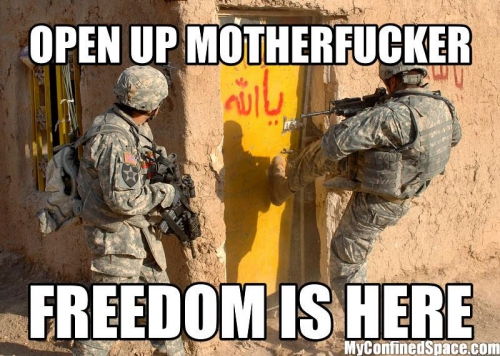



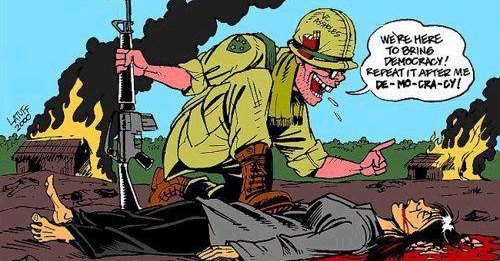

 del.icio.us
del.icio.us
 Digg
Digg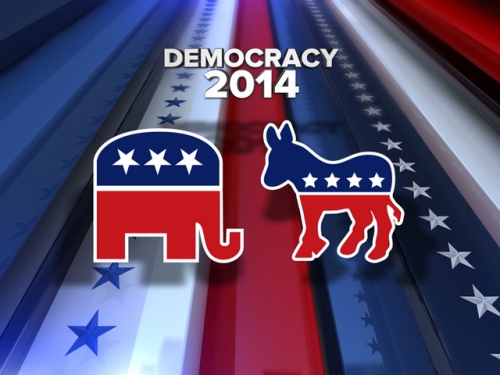


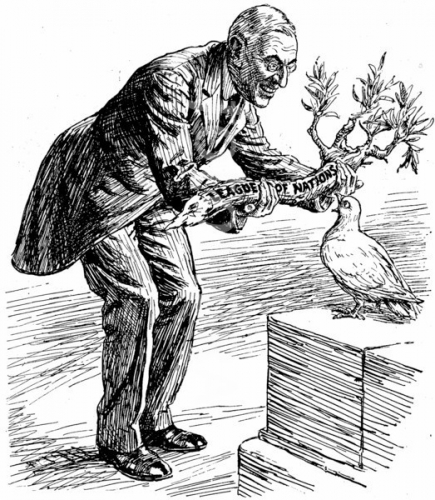
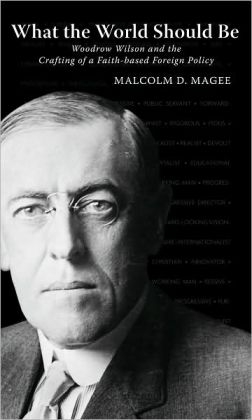 Although I purchased this book soon after it was published, other commitments compelled me to add it to my mountainous stack of books “to be read.” Since this year is the one hundredth anniversary of World War I, and I have already reviewed two books on World War I (Jack Beatty’s
Although I purchased this book soon after it was published, other commitments compelled me to add it to my mountainous stack of books “to be read.” Since this year is the one hundredth anniversary of World War I, and I have already reviewed two books on World War I (Jack Beatty’s 
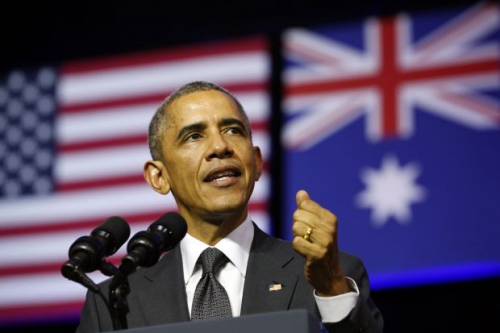
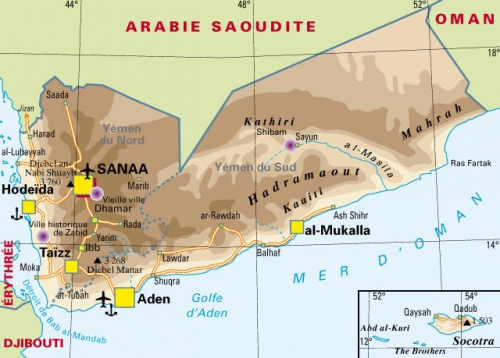
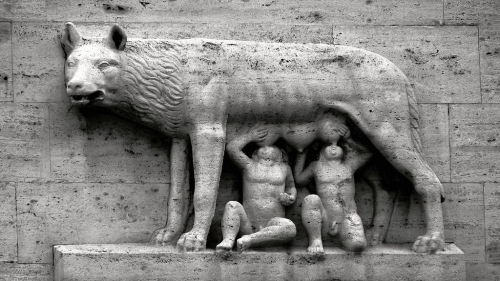
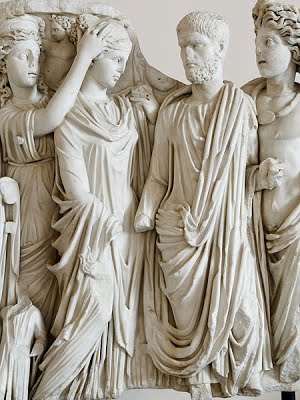 The claim that the Roman empire was a legally sanctioned multiracial state is another common trope used by cultural Marxists to create an image of the West as a civilization long working itself toward the creation of a universal race-mixed humanity. This is a lie to which patriots of Western Civ must not yield.
The claim that the Roman empire was a legally sanctioned multiracial state is another common trope used by cultural Marxists to create an image of the West as a civilization long working itself toward the creation of a universal race-mixed humanity. This is a lie to which patriots of Western Civ must not yield.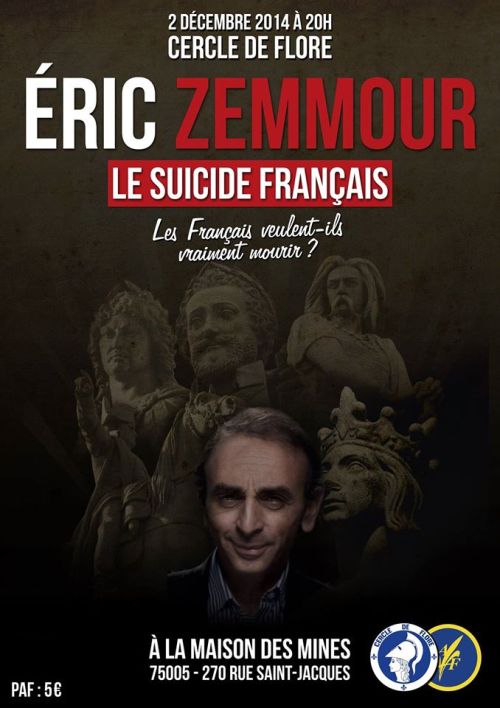


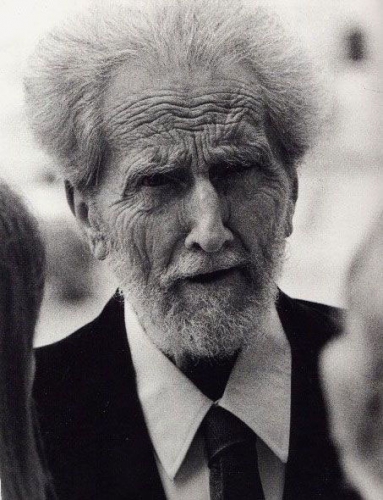 Au mois de novembre 1972, disparaissait le génial Ezra Pound dont la lutte contre l’usure fut une direction fondamentale de la vie et de l’œuvre. Les
Au mois de novembre 1972, disparaissait le génial Ezra Pound dont la lutte contre l’usure fut une direction fondamentale de la vie et de l’œuvre. Les 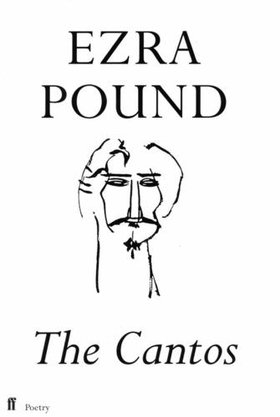 Si Pound n’est pas apprécié dans les médias, la raison en est son immense lucidité. Il a accepté la responsabilité historique d’écrire à contre courant, d’être un rebelle à temps complet. Son talent secouait la médiocrité et le mensonge. Son œuvre fonctionne comme un miroir dans lequel les trafiquants voient leur infâmie. Tout cela a été délégitimé par l’industrie du spectacle et les prédicateurs médiatiques. L’écrivain contemporain, celui pour qui les lobbys obtiendront un prix “ en souvenir de Nobel”, n’est plus qu’un propagandiste du meilleur des mondes. Pound reste l’ultime manifestation de l’esprit, incarne l’aède antique même si en ce moment les shopping center ont remplacé le forum.
Si Pound n’est pas apprécié dans les médias, la raison en est son immense lucidité. Il a accepté la responsabilité historique d’écrire à contre courant, d’être un rebelle à temps complet. Son talent secouait la médiocrité et le mensonge. Son œuvre fonctionne comme un miroir dans lequel les trafiquants voient leur infâmie. Tout cela a été délégitimé par l’industrie du spectacle et les prédicateurs médiatiques. L’écrivain contemporain, celui pour qui les lobbys obtiendront un prix “ en souvenir de Nobel”, n’est plus qu’un propagandiste du meilleur des mondes. Pound reste l’ultime manifestation de l’esprit, incarne l’aède antique même si en ce moment les shopping center ont remplacé le forum.

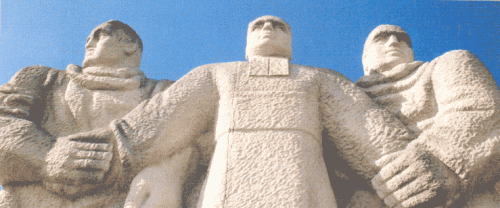
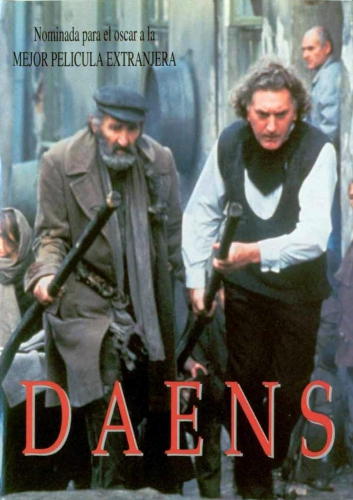 In linkse kringen is commotie ontstaan omdat er in het brievenboek aan Daens ook (ex-) Vlaams Belangers staan. Zoek de ware democraat.
In linkse kringen is commotie ontstaan omdat er in het brievenboek aan Daens ook (ex-) Vlaams Belangers staan. Zoek de ware democraat. Volgens Filip De Bodt – wiens blog werd overgenomen door De Wereld Morgen – maakt deze zaak twee dingen duidelijk. ‘Eén. Onder de koepel van het Vlaams-nationalisme gaan vele tendensen schuil die de gemeenschappelijke “nationalistische” eigenschap blijven koesteren en ze boven elke andere (sociaaleconomische) tegenstelling in een maatschappij plaatsen: wat ons bindt is het nationalisme en niet de visie die we hebben op ecologie, sociaaleconomische politiek … Twee. Door de groei van het aantal mensen die voor nationalistische partijen stemmen én de radicale maatregelen van rechtse regeringen, die heel wat maatregelen uit de vroegere VB-programma’s overnemen, wordt deze tendens bevestigd en vervaagt het onderscheid tussen rechts en extreemrechts. Het VB is voor veel neoliberalen en nationalisten geen plaag meer waar je een cordon sanitaire tegenover zet maar een aanvaardbaar verschijnsel in een samenleving. Als een partij die 30% van de stemmen haalt zijn uiterste best doet om extreemrechtse partijen als het VB op te slorpen, hoeft ook dit niemand te verwonderen.’
Volgens Filip De Bodt – wiens blog werd overgenomen door De Wereld Morgen – maakt deze zaak twee dingen duidelijk. ‘Eén. Onder de koepel van het Vlaams-nationalisme gaan vele tendensen schuil die de gemeenschappelijke “nationalistische” eigenschap blijven koesteren en ze boven elke andere (sociaaleconomische) tegenstelling in een maatschappij plaatsen: wat ons bindt is het nationalisme en niet de visie die we hebben op ecologie, sociaaleconomische politiek … Twee. Door de groei van het aantal mensen die voor nationalistische partijen stemmen én de radicale maatregelen van rechtse regeringen, die heel wat maatregelen uit de vroegere VB-programma’s overnemen, wordt deze tendens bevestigd en vervaagt het onderscheid tussen rechts en extreemrechts. Het VB is voor veel neoliberalen en nationalisten geen plaag meer waar je een cordon sanitaire tegenover zet maar een aanvaardbaar verschijnsel in een samenleving. Als een partij die 30% van de stemmen haalt zijn uiterste best doet om extreemrechtse partijen als het VB op te slorpen, hoeft ook dit niemand te verwonderen.’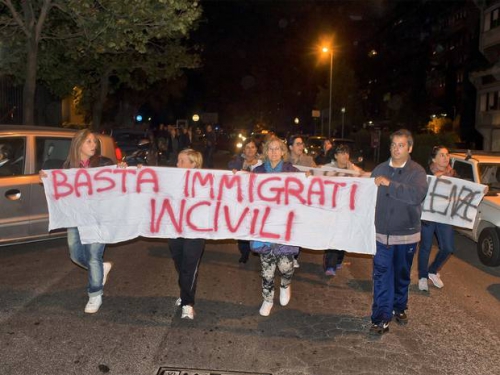


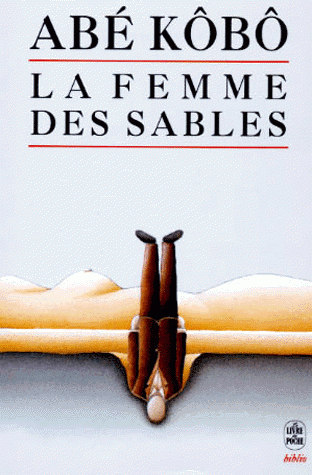 La deuxième des quatre œuvres issues de la collaboration de Teshigahara avec l’écrivain Kobo Abe, La Femme des Sables, est son long métrage le plus célèbre. C’est aussi certainement celui qui laisse l’impression la plus forte et la plus durable.
La deuxième des quatre œuvres issues de la collaboration de Teshigahara avec l’écrivain Kobo Abe, La Femme des Sables, est son long métrage le plus célèbre. C’est aussi certainement celui qui laisse l’impression la plus forte et la plus durable.

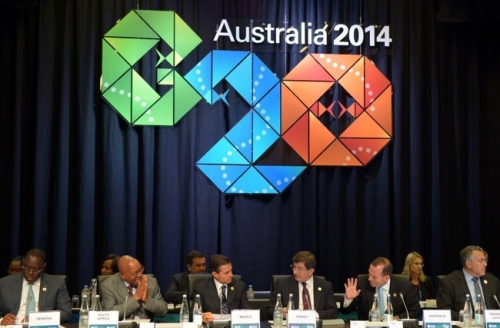







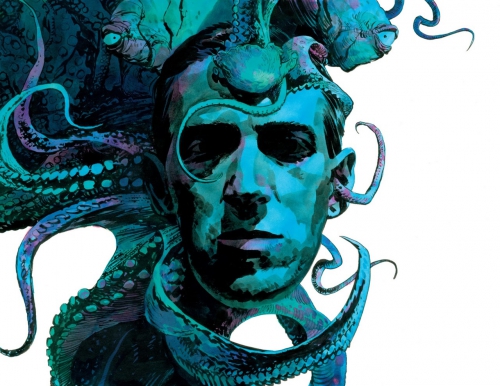
 Don Webb has been writing short stories, and the occasional novel, since, as a rather indifferent undergraduate at Texas Tech, he took a supposedly easy-A class in “The Science Fiction Short Story” and discovered that unlike his fellow slackers, he’d rather take the write a story option than the term paper. The story itself was equally indifferent, but by then the hook was in, a writer born.
Don Webb has been writing short stories, and the occasional novel, since, as a rather indifferent undergraduate at Texas Tech, he took a supposedly easy-A class in “The Science Fiction Short Story” and discovered that unlike his fellow slackers, he’d rather take the write a story option than the term paper. The story itself was equally indifferent, but by then the hook was in, a writer born.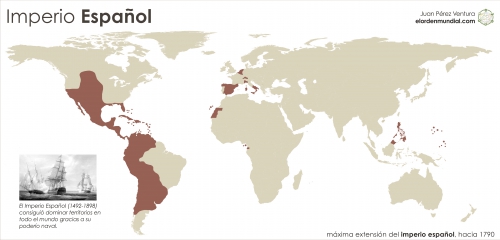
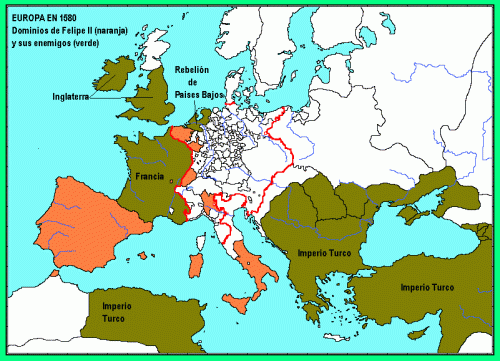
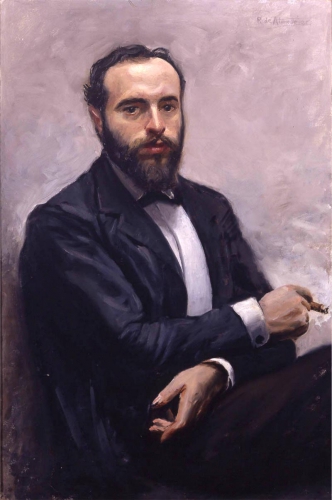 Nacido en Granada el 13 de noviembre de 1865, hijo de Francisco Ganivet Morcillo y Ángeles García de Lara y Siles, a la muerte de su padre en 1875 Ángel Ganivet tuvo que abandonar los estudios, para trabajar como escribiente en una notaría, pero 1880 su jefe le animó a reanudar su educación en el Instituto. En 1885 sacó su Bachillerato con matrícula de honor en todas las asignaturas. En el Instituto de Granada se interesa por las obras de Lope de Vega y empieza a leer a Séneca. Se licencia en Filosofía y Letras en la Universidad de Granada en 1888 y, dos años más tarde, termina la carrera de Derecho.
Nacido en Granada el 13 de noviembre de 1865, hijo de Francisco Ganivet Morcillo y Ángeles García de Lara y Siles, a la muerte de su padre en 1875 Ángel Ganivet tuvo que abandonar los estudios, para trabajar como escribiente en una notaría, pero 1880 su jefe le animó a reanudar su educación en el Instituto. En 1885 sacó su Bachillerato con matrícula de honor en todas las asignaturas. En el Instituto de Granada se interesa por las obras de Lope de Vega y empieza a leer a Séneca. Se licencia en Filosofía y Letras en la Universidad de Granada en 1888 y, dos años más tarde, termina la carrera de Derecho. 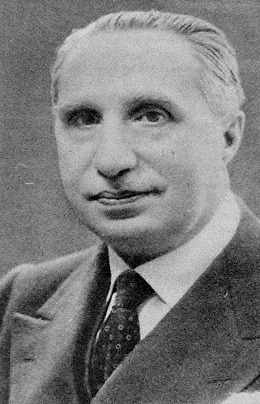 Nacido en Linares, descendiente de Rui Díaz de Yanguas, caballero calatravo portaestandarte en la Batalla de las Navas de Tolosa, D. José de Yanguas Messía era hijo del jurisconsulto D. José de Yanguas Jiménez y de Doña Luisa Gómez Vizcaíno.
Nacido en Linares, descendiente de Rui Díaz de Yanguas, caballero calatravo portaestandarte en la Batalla de las Navas de Tolosa, D. José de Yanguas Messía era hijo del jurisconsulto D. José de Yanguas Jiménez y de Doña Luisa Gómez Vizcaíno. 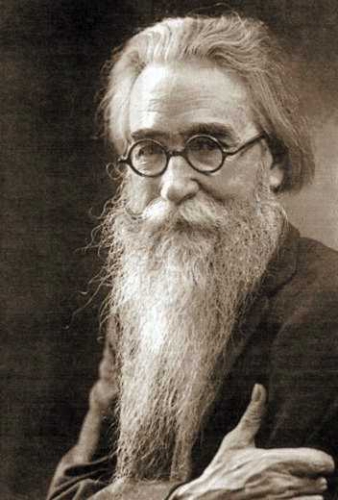 Pero, claro es, de Valle-Inclán uno no puede fiarse. Conocidas son sus inclinaciones por el esoterismo y su pertenencia militante en la perniciosa secta de la Sociedad Teosófica. Sus bandazos políticos son similares a los de otros compañeros de esa generación que al menos Azorín llamó del 98. Valle-Inclán muestra una flexibilidad en sus opiniones políticas capaz de desquiciar a cualquier ortodoxo. El genial escritor tiene una relación tan desenfadada con las palabras que nos puede parecer un irresponsable cuando no un perverso.
Pero, claro es, de Valle-Inclán uno no puede fiarse. Conocidas son sus inclinaciones por el esoterismo y su pertenencia militante en la perniciosa secta de la Sociedad Teosófica. Sus bandazos políticos son similares a los de otros compañeros de esa generación que al menos Azorín llamó del 98. Valle-Inclán muestra una flexibilidad en sus opiniones políticas capaz de desquiciar a cualquier ortodoxo. El genial escritor tiene una relación tan desenfadada con las palabras que nos puede parecer un irresponsable cuando no un perverso. 
